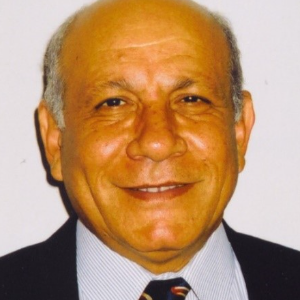Oilfield reservoir simulation is a sophisticated computational technique integral to the petroleum industry for understanding and optimizing the behavior of underground reservoirs. Employing mathematical models and numerical algorithms, reservoir simulation simulates the flow of fluids, including oil, gas, and water, within subsurface reservoirs. This technology aids in predicting reservoir performance under various operating conditions, providing valuable insights into production strategies and reservoir management. Engineers use reservoir simulation to analyze factors such as fluid flow, pressure distribution, and temperature gradients, enabling the optimization of recovery methods. Reservoir simulation allows for the assessment of the impact of different extraction techniques, such as water flooding or enhanced oil recovery, on overall reservoir productivity. It assists in designing well patterns, optimizing injection rates, and determining the most efficient reservoir development plans. The simulation process involves dividing the reservoir into discrete cells and solving complex equations to model fluid behavior over time. This helps in predicting the depletion of reserves, optimizing field development schedules, and making informed decisions regarding well placement and production strategies. Furthermore, reservoir simulation is instrumental in evaluating the feasibility of unconventional reservoirs, such as shale formations. It aids in understanding the complex interactions between hydraulic fracturing, fluid injection, and reservoir geology. The technology is continually evolving with advancements in high-performance computing, allowing for more detailed and accurate simulations. Real-time reservoir simulation is also becoming a reality, providing operators with dynamic insights to adjust production strategies in response to changing reservoir conditions. Overall, oilfield reservoir simulation plays a pivotal role in enhancing oil and gas recovery, minimizing risks, and optimizing the economic and environmental aspects of hydrocarbon extraction.

Anthony J Sadar
Environmental Science Communication, LLC, United States
Selim Sanad Shaker
Geopressure Analysis Services, United States
Sharma Dronamraju
AKD Professional Solutions Inc., United States
Ross Cygan Taylor
North Sea Transition Authority, United Kingdom
Saleh Alqahtani
Saudi Aramco, Saudi Arabia
Abdulrahman Bahashwan
Saudi Aramco, Saudi Arabia



Title : The Vacuum Insulated Heatable Curtain (vihc): From conceptual invention to market deployment as a cost-effective dual solution for window heat loss reduction and localised radiant comfort
Saim Memon, Sanyou London Pvt Ltd, United Kingdom
Title : Transforming waste plastic into hydrogen: Progress, challenges, and future directions in pyrolysis-based integrated pathways
Nur Hassan, Central Queensland University, Australia
Title : Unlocking UKCS potential through collaborative well interventions
Ross Cygan Taylor, North Sea Transition Authority, United Kingdom
Title : Driving excellence in marginal field development and operations through an integrated smart strategy to unlock challenging sour oil
Sharina Al Muhairi, ADNOC Onshore, United Arab Emirates
Title : Innovative solutions for accurate and efficient gas monitoring
Raysa Bani Ibrahim, Abu Dhabi National Oil Company, United Arab Emirates
Title : Innovative solutions for accurate and efficient gas monitoring
Mariam Alzaabi, Abu Dhabi National Oil Company, United Arab Emirates